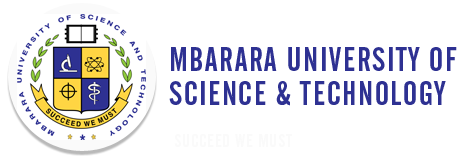The Centre for Innovation and Technology Transfer (CITT) in close partnership with the International Relations Office and the Academic Registrar’s office have partnered with the Engineers Without Borders (EWB), Canada in hosting a delegation of 7 Canadian Undergraduate students from Canada for the Canada African Innovation Fellowship (CAIF). The Canadian students are being paired with 8 Ugandan students during the Fellowship. The Fellowship will run for three months at the CITT Co-creation Space in Kihumuro Main Campus. The Canadian Fellows come from Canadian Universities that included among others University of Waterloo, McGill University, Carleton University and McMaster University. The CAIF was founded in 2020 and is a prestigious 13 weeks fellowship that has never happened in Uganda but has taken place in other countries globally such as Ghana and Canada. The Fellowship focuses on leveraging engineering and technology to provide global solutions. The CAIF, an Engineers Without Borders Canada initiative, offers a unique opportunity for Engineering and STEM undergraduate students in Canada and Africa to collaborate and tackle intricate global challenges. The focus of the CAIF program is on finding solutions, especially those linked to addressing issues around climate change. Fellows will use their engineering and tech knowledge to find viable solutions to this global challenge.

The 8 Canadian students have been twinned with 6 students of Engineering from the Faculty of Applied Sciences and Technology (Electrical, Biomedical, Mechanical and Petroleum Engineering) and Faculty of Computing and Informatics (Software Engineering) who were successful through a competitive process. The Fellows are taking part in the three-month fellowship that started in June and is ending in August 2024. The Fellows have been divided into three teams with each team working on one of the thematic areas of Solar Energy, Biogas generation and adoption and Animal and Crop Health. The teams shall visit communities surrounding the University to assess the challenges faced by the communities in relation to the three thematic areas. The teams are then expected to ideate and come up with innovative solutions that shall solve the most pressing problems in the thematic areas. The developed prototypes shall be tested at the community sites and iterations shall be done where necessary before full deployment of the innovations. The Innovation process shall be supported by mentors from Centre for Innovation and Technology Transfer (CITT) as well as expert facilitators from Engineers Without Borders. The EWB team is led by Mr. Hebert Kisara assisted by Mr. Rogers Kuyesu (an alumni of the Fellowship) and coordinated by Mr. Solomon Agum- the Principal Registrar at MUST.

Dr. Medard Twinamatsiko Katonera, the Director of Center for Innovation and Technology Transfer received the fellows and took them through the innovation ecosystem at MUST and the niche of bio-organic production. In his welcoming address, he informed the Fellows about the innovation landscape at MUST. He gave a brief history of the strides taken in promoting and fostering a multidisciplinary Innovation ecosystem at MUST and highlighted the achievements and groundbreaking innovations produced at MUST.

He informed the Fellows that MUST is happy to host the Fellowship program and asked the visiting Fellows from Canada to feel at home in Mbarara and use the 3 months to develop innovative solutions to biogas standardization, purification, turning it into electricity and undertaking avenues for mass production. His presentation followed a community engagement and orientation talk organized by the International Relations Officer Ms. Sheila Niinye and facilitated by Dr. Arubaku and Ms. Barbara Naggayi who highlighted key aspects of community entry and approaches.
We wish the visiting Fellows good luck as they innovate towards solving challenges in their chosen thematic areas.
Succeed We MUST

